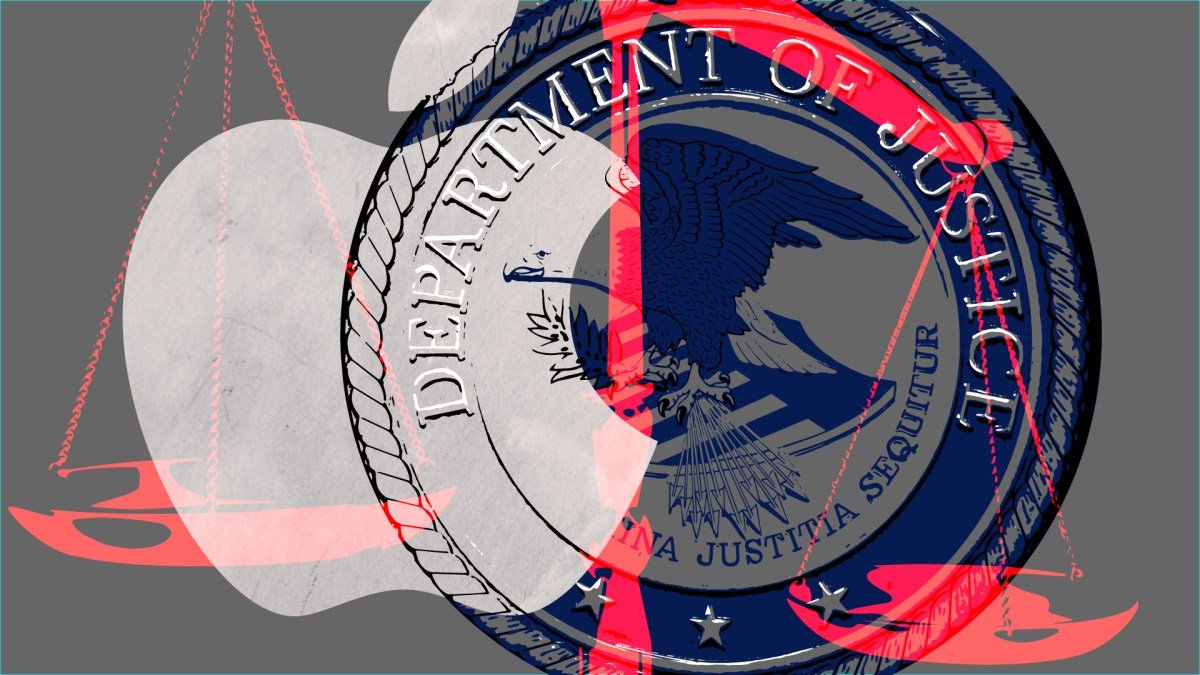Apple’s iPhone antitrust lawsuit: Everything we know so far on the DOJ’s case
U.S. regulators are accusing Apple of operating like a monopoly, and the implications of the case stretch far beyond iOS and iPhones themselves.
Apple’s antitrust scrutiny has reached a fever pitch. On Thursday, the U.S. Department of Justice (DOJ) announced that it filed a lawsuit against Apple, accusing the tech giant of behaving like a monopoly by locking in iPhone customers and limiting competition in building hardware and software.
The lawsuit, which follows several antitrust cases against Apple outside of the U.S., is a complex affair. However, we have compiled all the information available on the DOJ’s case, including the industry’s response and the potential impact on companies and customers.
We will update this page as the case evolves, but it is important to note that a resolution may take several years, as experts estimate a timeline of three to five years.
- The DOJ’s Claims Against Apple
- “Super” apps: These are applications that contain numerous functions within a single app. For instance, Elon Musk’s “everything app” aspirations for X. The DOJ claims that Apple is inhibiting their success to increase dependence on the iPhone.
- Messaging apps: The DOJ cites the “blue bubble, green bubble” effect as a factor discouraging iPhone users from adopting a competitor device. According to the lawsuit, this effect is particularly powerful for certain demographics, like teenagers, where the iPhone’s share is 85 percent, according to one survey.
- Cloud streaming gaming apps: The lawsuit highlights Apple’s alleged opposition to cloud-based gaming, with the company’s actions aimed at preventing consumers from playing games “without the need for users to purchase powerful, expensive hardware.” (Page 33 for reference.)
- Digital wallets: Despite only taking a fraction of the company’s total revenue, the lawsuit alleges that Apple’s 0.15% fee for all transactions made through Apple Pay gives the company “complete control” over users’ NFC payments and hinders competitors.
- Smartwatch cross-platform compatibility: The DOJ’s claim is straightforward – by limiting the functionality of Apple Watches with non-iPhone devices, the lawsuit claims that “it becomes more costly for that user to purchase a different kind of smartphone.”
- Apple and the Industry’s Response
- What’s Next for Apple’s Antitrust Case?
If you want to dive into legal documents immediately, you can read the DOJ’s lawsuit here. Otherwise, here are five key categories in which the complaint accuses Apple of actively suppressing competition:
On Thursday, Apple issued an extensive series of rebuttals to the DOJ’s claims, which you can check out in full detail here. The core of Apple’s argument is that regulators are selectively choosing metrics that make the company’s strength in the smartphone market seem more dominant than it actually is. Apple also argues that regulating the alleged monopolistic behaviors would diminish its competitive advantage and negatively impact iPhone users.
On the other hand, app makers are showing strong support for the DOJ’s regulatory action. The Coalition for App Fairness (CAF) voiced its support, given that several of its members, such as Epic Games and Spotify, have had public disputes with Apple regarding its App Store practices.
“The DOJ complaint details Apple’s long history of illegal conduct – abusing their App Store guidelines and developer agreements to increase prices, extract exorbitant fees, degrade user experiences, and choke off competition,” said CAF Executive Director Rick VanMeter in a statement Thursday. “The DOJ joins regulators around the world, who have recognized the many harms of Apple’s abusive behavior and are working to address it.”
In the immediate term, there will not be much movement. The release of the lawsuit and the ensuing back-and-forth between Apple and the DOJ was a flurry of activity, and it may take years to settle. For reference, the DOJ’s antitrust case against Google was filed in 2020 and went to trial last year, but it may still take several more years to reach a conclusion.
However, it is unlikely that the present will unfold the same way as the past. Although the DOJ references the successful antitrust prosecution against Microsoft in the 1990s, there are significant differences between the two cases, mainly in how easily defined Microsoft’s market dominance was compared to Apple’s current status quo.
For more information on Apple’s antitrust lawsuit, continue to check back here.








